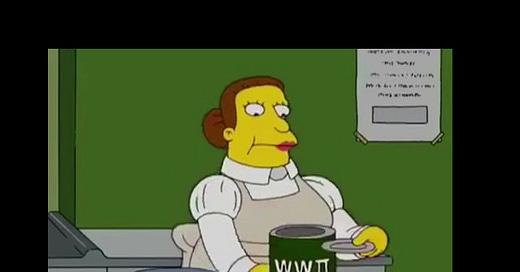Complaints about mass-produced food are nothing new. In fact, they’re so common that they’ve been a recurring trope in movies and television for so long as we have had movies and television. From school cafeteria lunches in American sitcoms to military rations in war films, there’s a long tradition of people groaning about the food served en masse. Whether it’s hospital slop, airline meals, or cafeteria trays of mystery meat, the idea that institutional food is subpar is practically universal.
For the last few weeks, we've witnessed a parade of complaints about New Zealand’s school lunch program. It's arriving late. The portions are wrong. And beneficiaries of the program complain the meals are comparable to dog food.
So far, so plus ça change. And if children have been turning their noses up at the meals, the opposition has at least been feasting on the issue. Not always very wisely.
Labour’s Jan Tinetti embarrassed herself by attacking a school lunch which she called "disgraceful”. It turned out that the image was from 2022, when Labour was still in government. Post deleted and memory holed.
Criticism of poor public service delivery is necessary when warranted. When schools report that meals are arriving hours after lunchtime, that's a real issue that demands attention. When principals point out that hungry children can't learn effectively, that's a valid concern about educational outcomes. When taxpayers question whether their money is being well spent on a program generating significant waste, that's civic engagement.
But there's another voice in this chorus that gets on our nerves: parents whose children receive these free lunches criticising the program without any acknowledgment of its fundamental value being provided to their families.
Consider the parent quoted in the Herald who dismissed the food as "yuck" while reminiscing about how much better things were last year.
There seems to be no appreciation that in most places and throughout most of history, the idea that the state would provide free meals to schoolchildren would have seemed extraordinary. There's no acknowledgment that this represents a significant investment of other people's money to benefit their children.
Let’s be frank about something that has become almost taboo to acknowledge: an inability to feed one's children represents a failure of the fundamental responsibility of parenthood.
None of us should cast judgment about personal situations with which we are not familiar. Any mother or father could find themselves in this position through no fault of their own. Job loss, illness and family breakdown can derail even the most responsible parent's ability to provide.
Life can be brutally hard. That's precisely why we have school lunch programs and other social support systems. Those of us who do not need them should count our blessings.
But in our rush to destigmatise need and support struggling families, we shouldn't normalise the idea that providing for children's basic needs is optional for parents. Parents should feel uncomfortable when they can't meet their children's needs. That’s not because we want them to suffer, but because that discomfort reflects a healthy understanding of parental responsibility.
People do not need to be quietly grateful for whatever their children are given. Quality matters. Timeliness matters. Nutrition matters. But the manner in which these concerns are raised also matters, because it affects the social contract that makes such programs possible in the first place.
At the end of the day, edible food was provided. I’ve seen no suggestion it was unsafe to consume. The lateness is an issue but it’s not like government services have ever renowned for always being on time.
When beneficiaries of public services complain without any acknowledgment or appreciation for the basic assistance they're receiving, it creates resentment among those who fund these services through their taxes. This resentment can corrode public support for social programs that genuinely help children and families in need. Money is hard to come by and the average New Zealander is now quite heavily taxed.
And so an entitled approach to criticism will ultimately threaten the very services these parents rely upon. It's much harder for political leaders to defend social spending when recipients appear ungrateful or entitled. It's more difficult to maintain public support for expansion or improvement of services when the discourse around them lacks any recognition of their fundamental value.
There's also a missed opportunity here to model important values for children. When parents approach public assistance with an attitude of entitlement rather than appreciative critique, what lesson does that teach? Perhaps instead of just complaining about food quality, parents using the program could at least acknowledge the privilege of having other parents pay to feed their kids.
Nobody is asking for a medal here - just a pinch of gratitude, perhaps.






I do so agree with all this! Parents really need to take responsibility for the children they breed and not expect others to look after them. There will certainly be cases of genuine need and they should be helped but to expect handouts as a right is unrealistic. If children turn up their noses at what is provided for them then they certainly aren't hungry. And what's wrong with a sandwich and a piece of fruit; we grew up with that for lunch, provided by our parents..